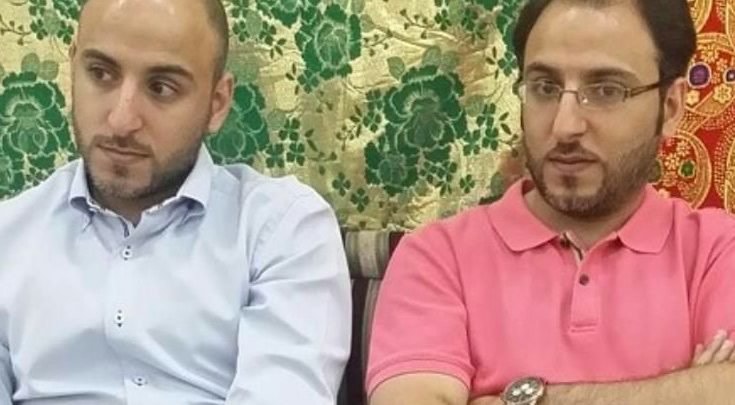Brothers Mohammed and Ali Fakhrawi first became active in public affairs after their return from studying abroad in the UK in 2004. Since then, they have been repeatedly targeted by the Bahraini authorities. This targeting increased at the end of 2010, and reached its peak following the announcement of a state of emergency. At the same time, a crackdown was taking place against protesters in Pearl Square on 16 March, a month after the onset of the 2011 uprising.
On March 29, security forces attacked the houses of the brothers due to their political activities during the uprising. The authorities looted their properties and intimidated their families. This took place at the same time as their uncle Abdulkareem Fakhrawi’s house was attacked. Abdulkareem, a businessman and an owner of a library and publishing house, was then arrested and killed under torture, after spending only eight days in prison.
As a result of that, the Fakhrawi brothers entered an unstable period which lasted for six months. During that time, they were forbidden from practicing their normal life, and were kept apart from their families. Their financial and economical assets were also targeted, which led to the loss of millions of Bahraini dinars at that time.
With the formation of the Bahrain Independent Commission of Inquiry (BICI) (known as the Bassiouni Commission), a safer atmosphere prevailed in the country. The brothers were able to practice their normal lives once again. However, this did not last for more than two months, at which point their struggle with the security forces resumed. They were eventually arrested on 18 September 2015.
The torture started from the very first moments of their arbitrary detention. When Mohammed Fakhrawi asked for an official warrant that legally justifies the raid of their house, the security forces tortured him in one of his rooms. The torture continued during the trasnfer of the brothers to the Central Investigation Department (CID), and this lasted continiously for more than 90 days, day and night.
The different methods of torture included sexual harassment, forceful stripping, blindfolding for long periods, prohibiting any religious practices, severe hitting on the head and genitals, handcuffing, and the banning the use of a toilet and shower. Moreover, it included the prohibition of food and water for long periods, threatening to rape their mother and wifes, electric shocks and the splashing cold water followed by keeping them in a freezing room. The handcuffing lasted for more than a 100 days, even during their sleep.
On 30 October 2017, they were sentenced to life imprisonemnt and their citizenship was stripped, with them accused of terrorism. The trial occurred without a lawyer and without giving them enough time for pleading. The court also relied on confessions that were extracted under torture. They were directly transferred from the court to Jaw prison.
Until this day, Mohammed and Ali are deprived of their most basic rights, as they are either imprisoned in solitary confinement or kept with prisoners who are drug addicts, suffering from chronic diseases or mental illnesses. In addition, they have been forbidden several times and for long periods from their right of family visits and phone calls. They have also been prohibited from their daily walk in the prison yard, from practicing their religious rituals, and even from attending their family funerals.
Last August, Mohammed Fakhrawi underwent a hunger strike in protest against the mistreatment. As a result, the prison administration tortured him once more, preventing him from receiving medical treatment, and forcing him to lie naked on an iron bed while his hands and legs were cuffed.
We call on international national human rights organisations, including the International Red Cross, to communicate with the Bahraini authorities in order to look into the conditions of Bahrain’s prisoners, including Mohammed and Ali. We call for the release of all prisoners of conscience, especially in light of the fear of Coronavirus spreading among prisoners.


 العربية
العربية Français
Français Deutsch
Deutsch